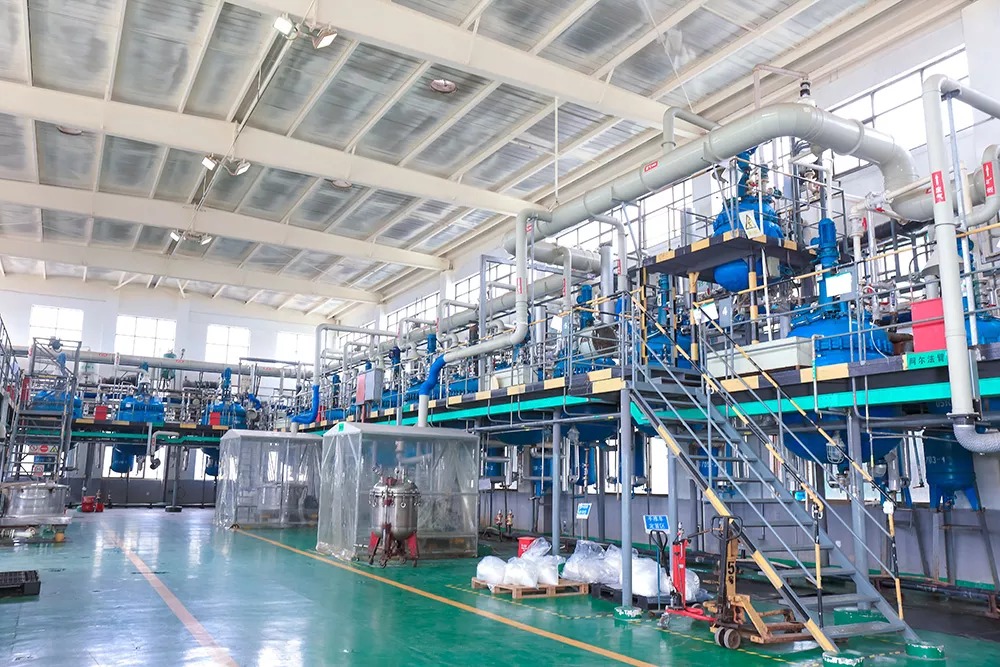Anti-cancer drugs are used to treat cancer patients and have been shown to be effective in managing the disease. The manufacturing process for these drugs is complex and involves several stages, including the production of Active Pharmaceutical Ingredients (APIs) and intermediates. In this blog post, we will explore the relationship between APIs and intermediates in anti-cancer drug manufacturing. Arbor Chemical will also discuss some examples of anti-cancer drugs and their corresponding APIs.
APIs are the active ingredients that make anti-cancer drugs effective in treating cancer patients. They are pure chemical compounds that have a therapeutic effect on the body. The process of producing APIs starts with raw materials, which undergo a series of chemical reactions to produce pure chemicals. These chemicals are then purified through various processes to produce APIs that meet pharmaceutical standards.
Intermediates, on the other hand, are compounds that are produced during the chemical synthesis process of APIs. These compounds undergo further chemical reactions before being converted into APIs. Although intermediates do not have any therapeutic effect on their own, they play a critical role in API production as they help to increase purity levels and enhance yield.
The production of anti-cancer drugs requires highly specialized equipment and facilities due to its complexity and sensitivity. Manufacturers must adhere to strict quality control standards at every stage of production to ensure consistency and safety of their products. This is particularly important for anti-cancer drugs as they are intended for use by vulnerable patients who need reliable treatment options.
Some examples of anti-cancer drugs include Paclitaxel, Doxorubicin, and Cisplatin, among others. Paclitaxel is an API used in chemotherapy for ovarian, breast, lung, pancreatic cancer treatments while Doxorubicin is an API used for lymphoma and breast cancer treatments. Cisplatin is an API used for the treatment of bladder, ovarian, and testicular cancers. These drugs have been shown to be effective in treating cancer when used correctly.
In summary, APIs are the active ingredients that make anti-cancer drugs effective in treating cancer patients. They undergo a complex production process that involves several stages, including the production of intermediates. Intermediates play a critical role in API production as they help increase purity levels and enhance yield. Anti-cancer drug manufacturing requires specialized equipment and facilities to ensure consistency and safety of their products. The examples provided show how APIs are used in chemotherapy treatments for various types of cancer. By understanding the relationship between APIs and intermediates, we can appreciate the complexity involved in producing effective anti-cancer drugs.
Understanding this complex relationship further, it’s also worth noting how regulatory frameworks fit into the equation. Regulatory agencies, such as the FDA in the United States, play a pivotal part by setting stringent guidelines for the production of APIs and intermediates. Compliance with these regulations is paramount to guarantee that the final anti-cancer treatments are not only effective but also safe for patient use. Companies involved in the production of these pharmaceuticals must navigate the regulatory landscape diligently, investing in comprehensive quality assurance programs that oversee every stage of production from raw material acquisition to final API synthesis.
Moreover, current trends in the industry point to an increased adoption of biotechnology in the production of anti-cancer APIs. Biopharmaceuticals, derived from living organisms, represent a growing class of compounds with potential cancer-fighting properties. These biological APIs often require advanced techniques like recombinant DNA technology and monoclonal antibody production. Their complexity demands not only highly controlled production environments but also specialized handling and storage conditions to preserve their integrity. The integration of biotechnology into anti-cancer drug manufacturing poses new challenges but also opens the door to more targeted and individualized treatments, promising a new era of oncology therapeutics.
As we look to the future of anti-cancer treatment, the role of personalized medicine cannot be overstated. Precision medicine approaches are focused on customizing healthcare, with medical decisions and treatments being tailored to individual patients. In terms of API development, this means designing drugs based on the genetic profiles of specific cancers, which can significantly improve the efficacy of treatment while minimizing side effects. Innovations in genomics and bioinformatics are instrumental in pushing this frontier of cancer therapy forward, providing new insights into how cancer cells grow and how they can be targeted more effectively with bespoke APIs.
The evolution of anti-cancer drug manufacturing also pivots on the sustainability of production processes. As the global demand for these life-saving medications increases, the industry is being challenged to adopt greener practices. This includes reducing the environmental impact of API and intermediary production through the principles of green chemistry, such as minimizing waste and avoiding the use of hazardous substances. Furthermore, leveraging alternative energy sources and recycling solvents are steps towards more eco-friendly manufacturing. The pursuit of sustainable methods not only aligns with ethical practices but also contributes to the long-term feasibility of cancer drug production.



